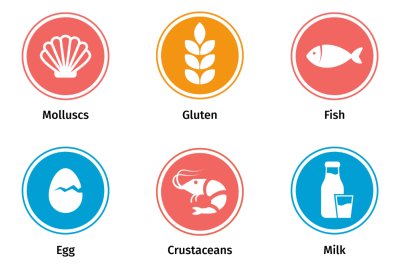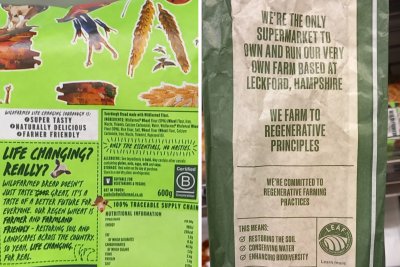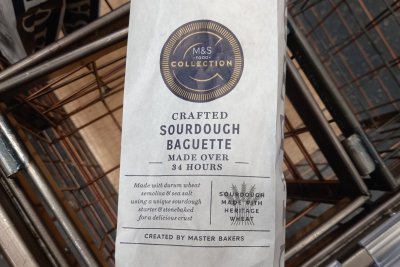 More bread for small bakeries?. Credit: Chris Young / www.realbreadcampaign.org CC-BY-SA-4.0
More bread for small bakeries?. Credit: Chris Young / www.realbreadcampaign.org CC-BY-SA-4.0
Lobbying for small bakery business support
The Real Bread Campaign continues to press government for answers and assurance.
On 30 January 2023, the Campaign received a response to emails it sent in September 2022 to the then Prime Minister and Business Secretary and followed up with their successors in November 2022.
In his letter, Kevin Hollinrake, the Parliamentary Under Secretary of State at the Department for Business, Energy & Industrial Strategy (BEIS) wrote: “Small and medium sized businesses (SMEs) are the backbone of our economy and have a key role to play in driving economic growth.”
The governmental support he went on to note included:
- Energy Bill Relief Scheme
- Support with business rates
- Increasing the employment allowance
- Exempting small and micro businesses from regulations “where possible”
- Reversal of the National Insurance rise “which will save small businesses £4,200 on average”
- An extension to the Recovery Loan Scheme "to help small businesses access the finance they need to grow and invest."
The letter also signposted:
- Alternative Business Funding, "which has a wide range of funders offering over 140 products."
- 38 Growth Hubs across England "providing businesses with free one-to-one support and advice."
- The Government’s Business Support Helpline, England, which "can provide free support and guidance about local and national business support offers."
Real Bread Campaign coordinator Chris Young replied with the following:
Dear Mr. Hollinrake,
Thank you for your response.
We understand that the new Energy Bills Discount Scheme will include greater discounts apply to ‘Energy and Trade Intensive Industries’ (ETII). Types of business on this list include those engaged in SIC class 10.71 ‘manufacture of bread; manufacture of fresh pastry goods and cakes’ and 10.61 ‘manufacture of grain mill products’.
Can you confirm that this includes all baking/bakery businesses of all sizes/scales working in these classes (including home-based microbakeries), or only businesses operating at an industrial scale?
Can you also please advise on the outstanding points of our previous correspondence? Will the government offer the following to micro and small bakery businesses:
- Easy-to-apply for grants to cover (what will hopefully be short-term) huge increases in operational costs.
- The ability to reclaim VAT on energy costs.
- Raising the small business rates relief threshold.
- Establishing a government-backed, not-for-profit collective procurement body to purchase electricity and flour at bulk rates to enable small bakeries to benefit from discounted prices.
- Government support in covering the costs of redundancies; dilapidations to buildings and early surrender costs on leases in the case that a small business is forced out of business.
Other support
In the medium to long-term, we call for:
Grants (similar to the scheme available in Tees Valley) to enable micro and small bakeries get advice and assistance on how to reduce energy usage and become more energy-efficient – as well as switching to non-polluting renewables – and to help them with the necessary equipment refurbishment or replacement, insulation installation etc.
A local food voucher scheme to support people hit hardest by the cost of everything crisis, as well as small producers and retailers. The vouchers would be redeemable at independent outlets, such as small bakeries market stalls and local shops, rather than multiple retailers and other chains.
The Honest Crust Act of updated and improved composition, labelling and marketing legislation. At low-to-no cost to the government, these measures will help to level out the playing field on which small bakery businesses have a better chance of surviving and thriving. They will also give shoppers greater confidence about what they are spending their reduced food budget on.
Will the government introduce these?
Updates
2 March 2023: Replying instead of Kevin Hollinrake, Amanda Solloway, the
Parliamentary Under Secretary of State at the Department for Energy Security & Net Zero, pointed to the list of Standard Industrial Classification (SIC) sectors that will be eligible for support under the ETII scheme. She also wrote: "The firms eligible for the ETII scheme are those operating within sectors that fall above the 80th percentile for energy intensity and 60th percentile for trade intensity, and those within sectors eligible for the existing Energy Intensive Industries compensations and exemption schemes. Both thresholds need to be met to warrant inclusion, meaning that some energy intensive sectors, which are not significantly trade intensive will not be eligible for support."
We replied by repeating the question to which she was responding: "Can you confirm that this includes all baking/bakery businesses of all sizes/scales working in these classes (including home-based microbakeries), or only businesses operating at an industrial scale?"
We also yet again asked the questions (see letter above) that remain unanswered since September 2022.
See also
Real Bread Campaign: Finding and sharing ways to make bread better for us, our communities and planet.
Sustain
The Green House
244-254 Cambridge Heath Road
London E2 9DA
020 3559 6777
sustain@sustainweb.org
Sustain advocates food and agriculture policies and practices that enhance the health and welfare of people and animals, improve the working and living environment, promote equity and enrich society and culture.
© Sustain 2025
Registered charity (no. 1018643)
Data privacy & cookies
Icons by Icons8








